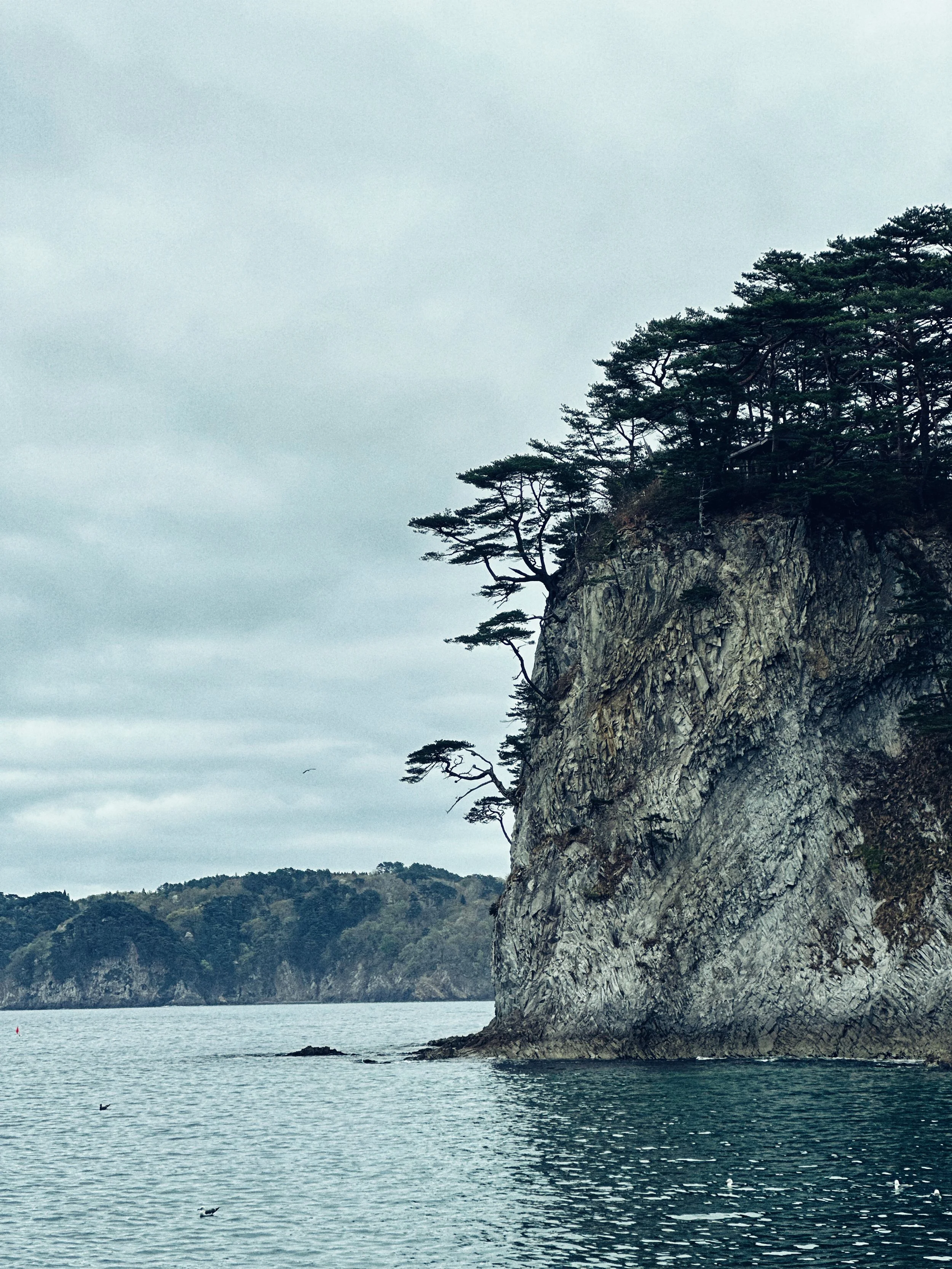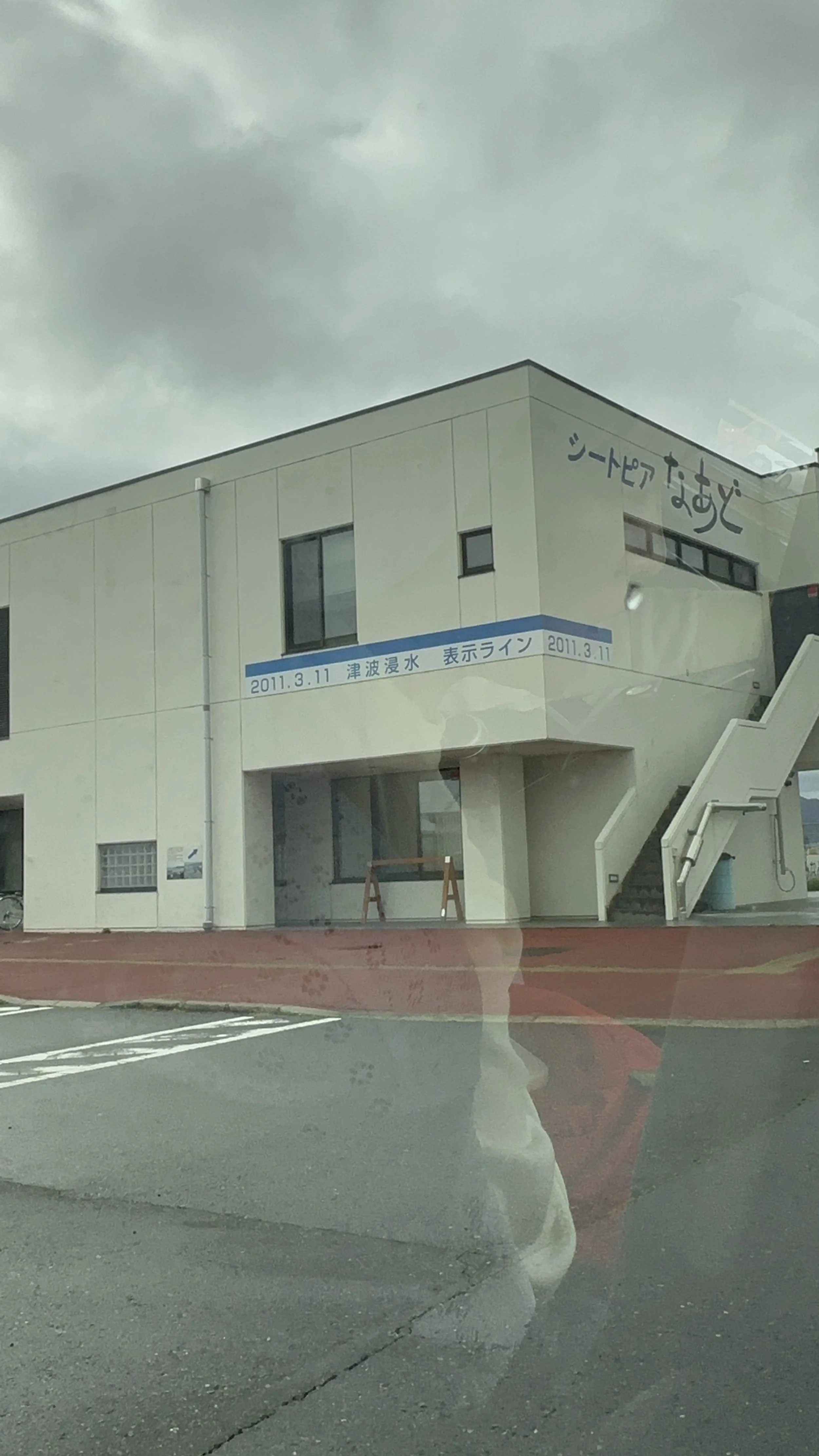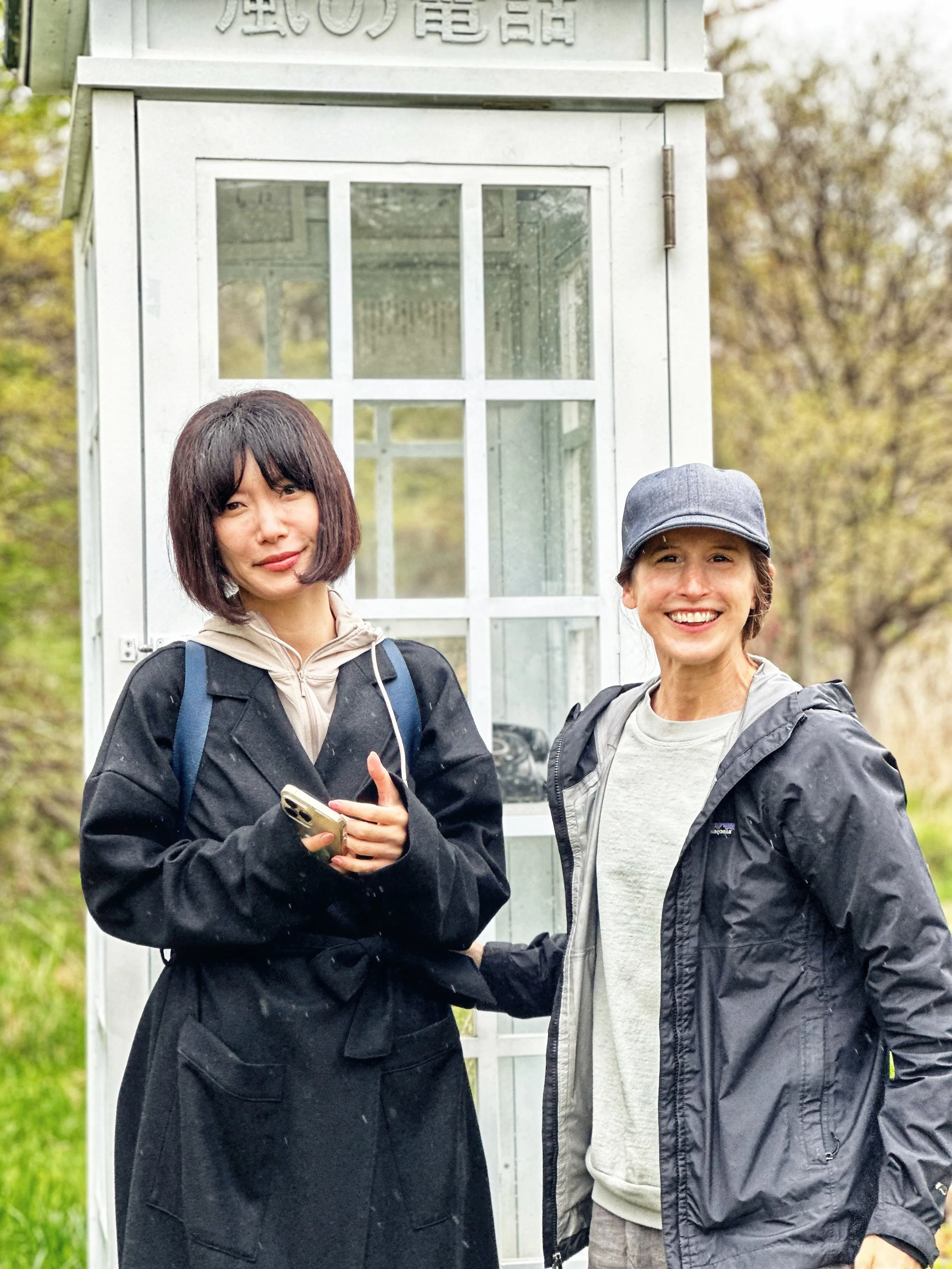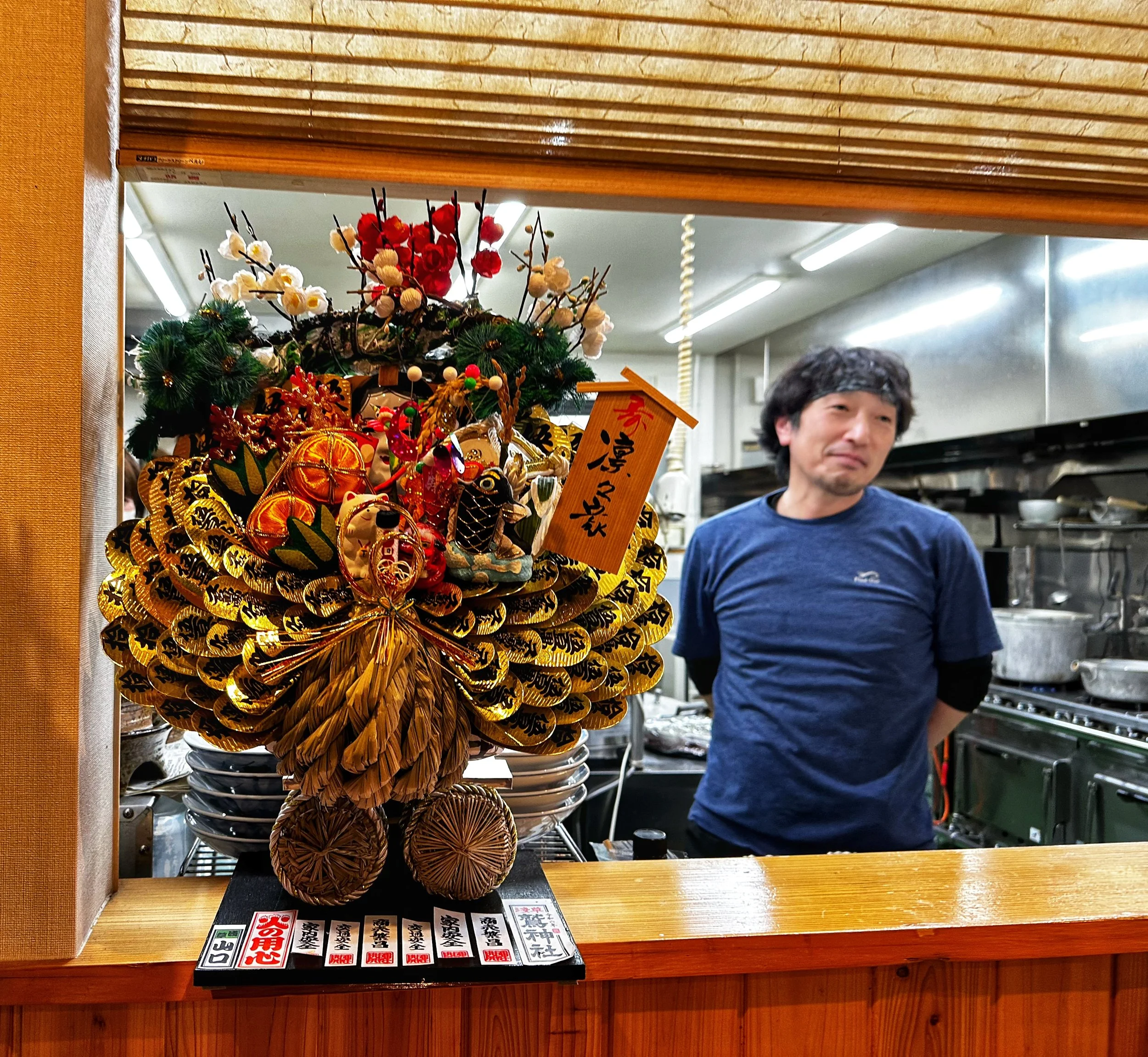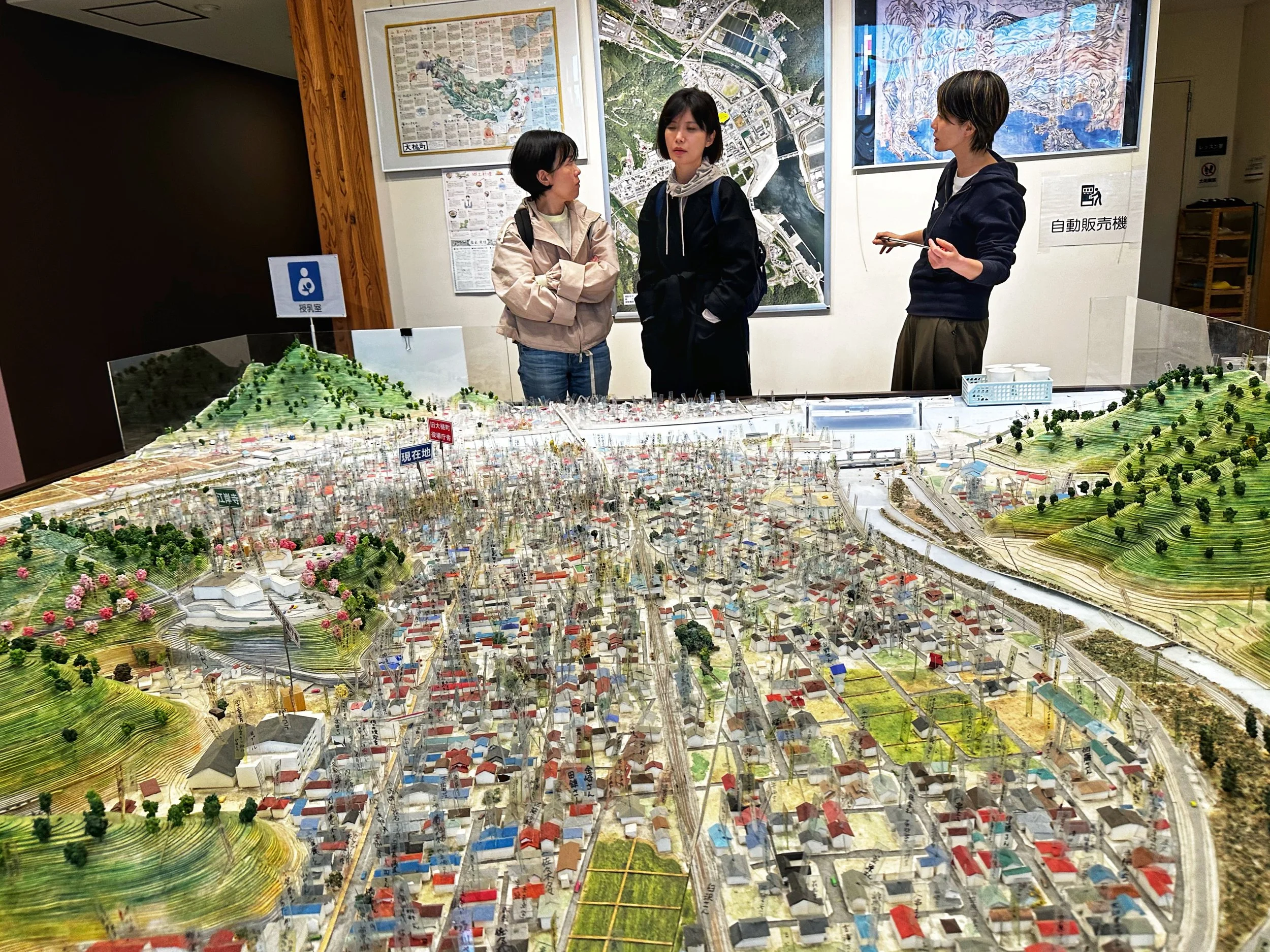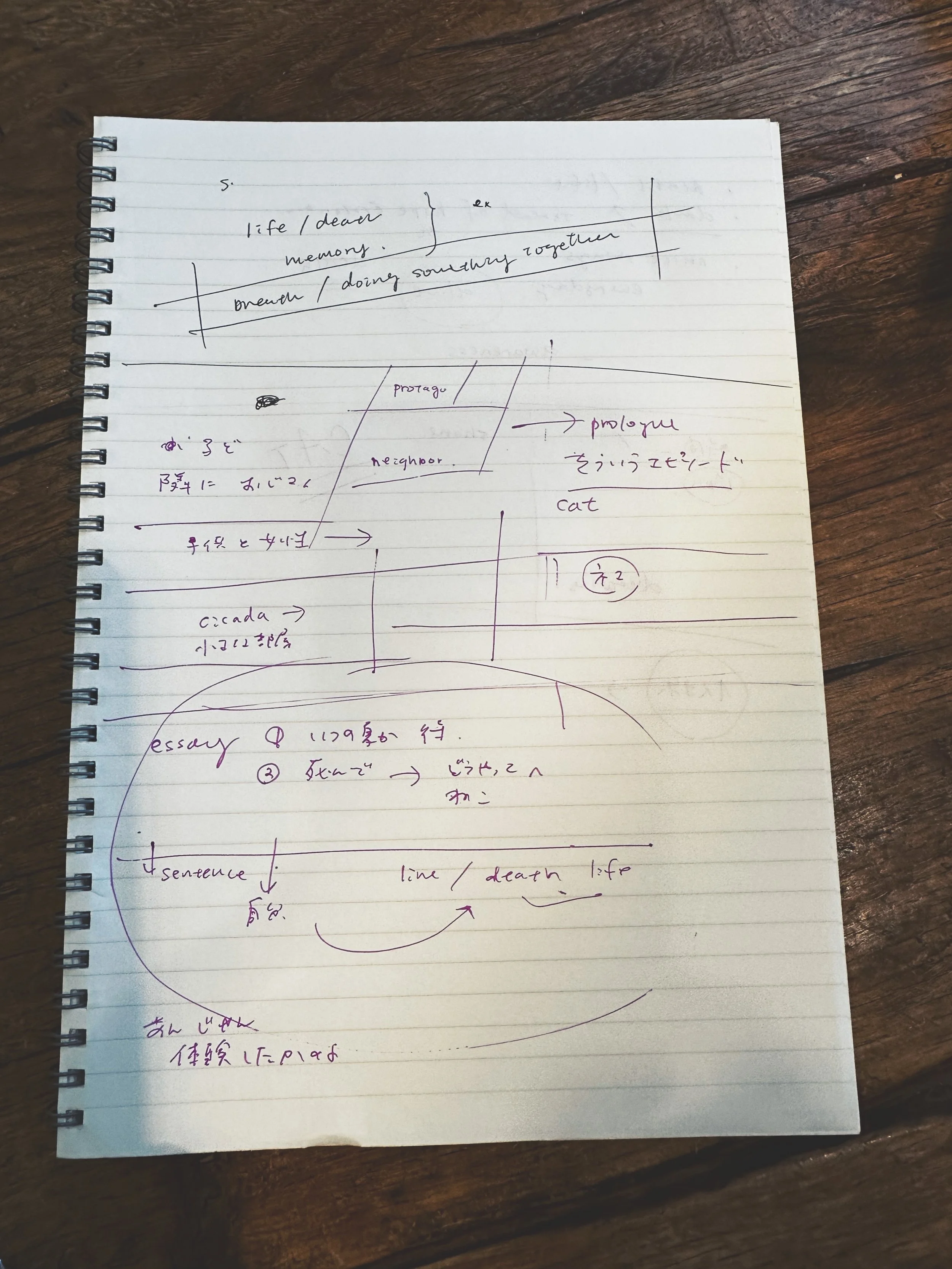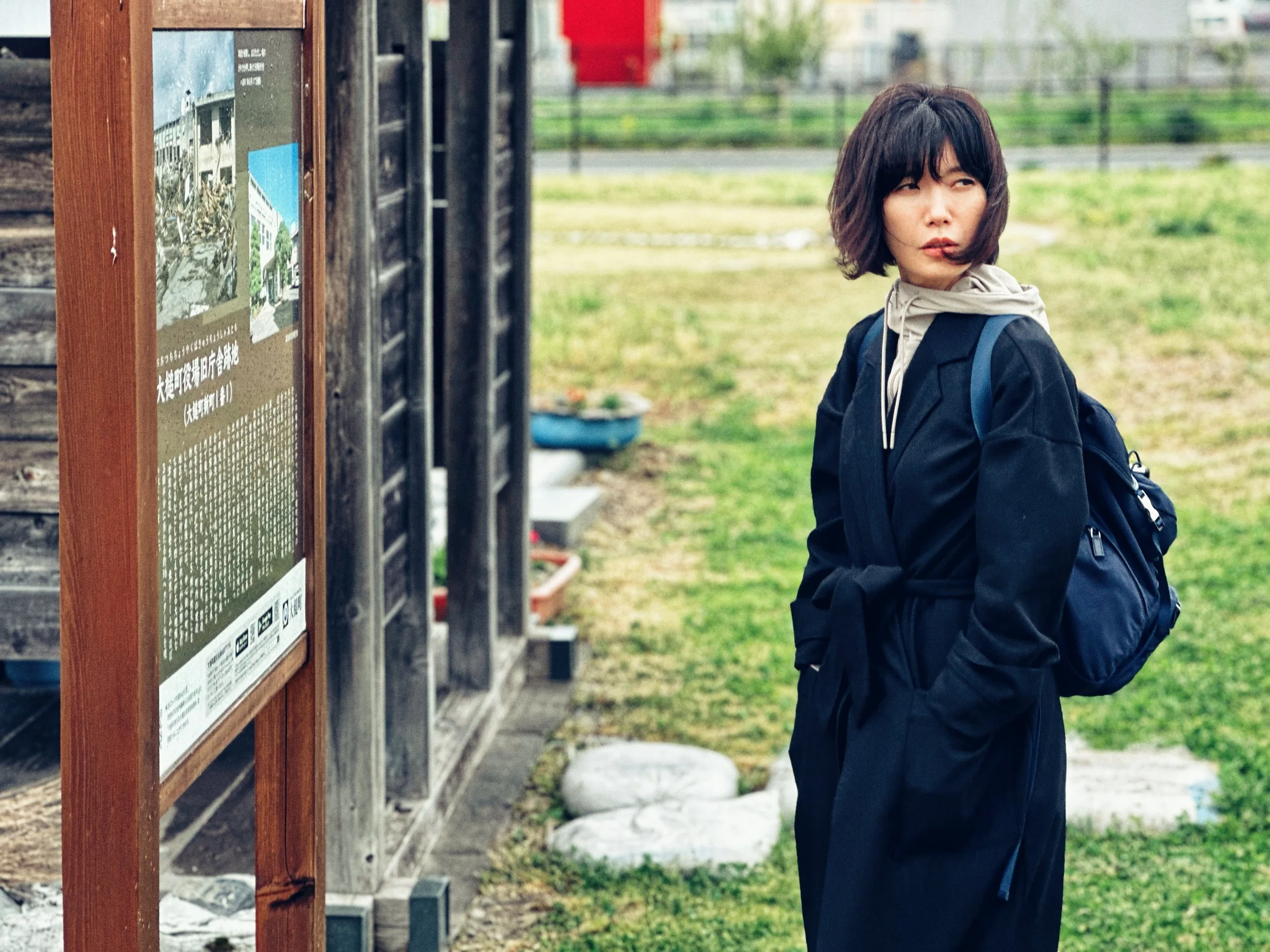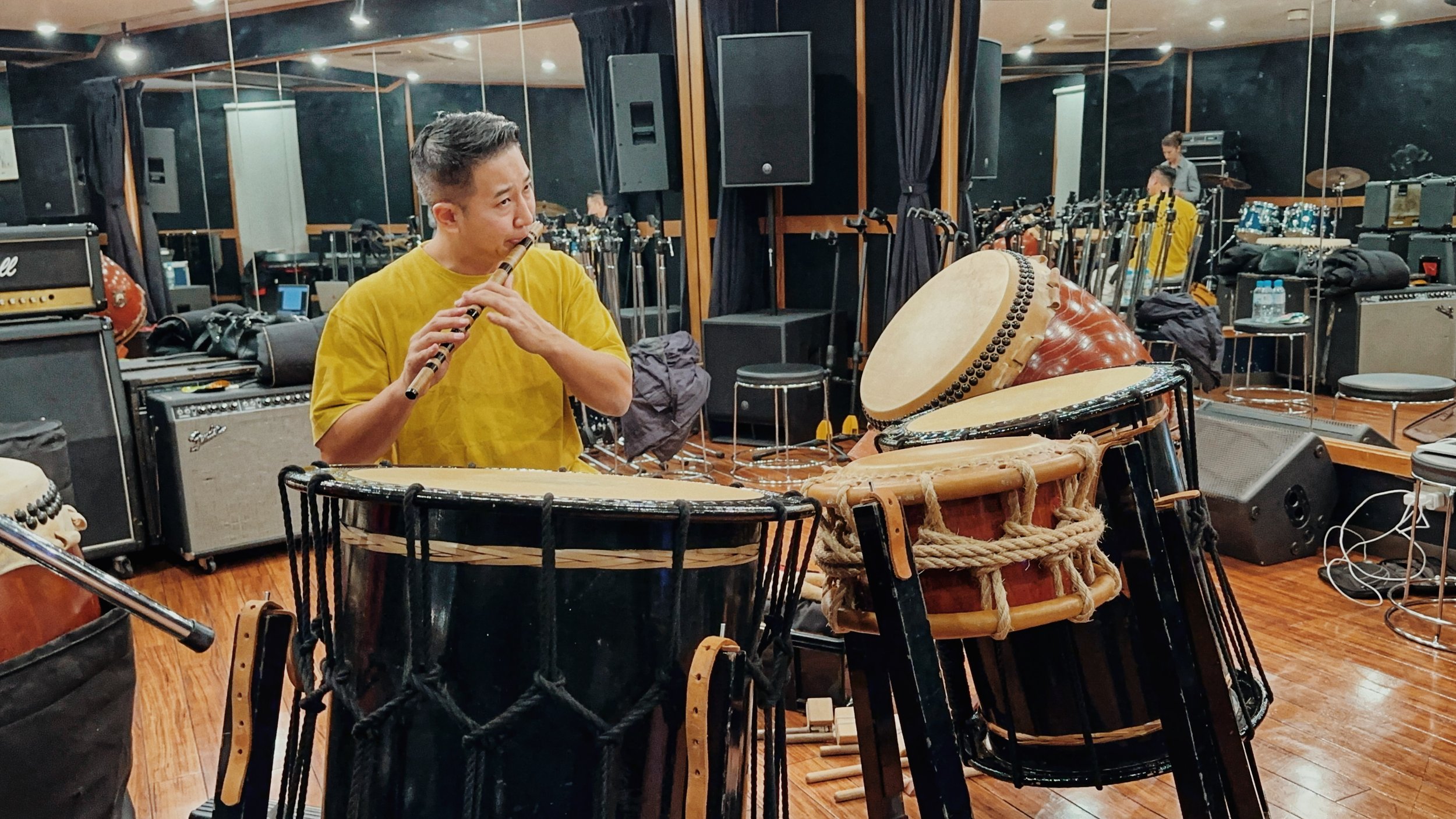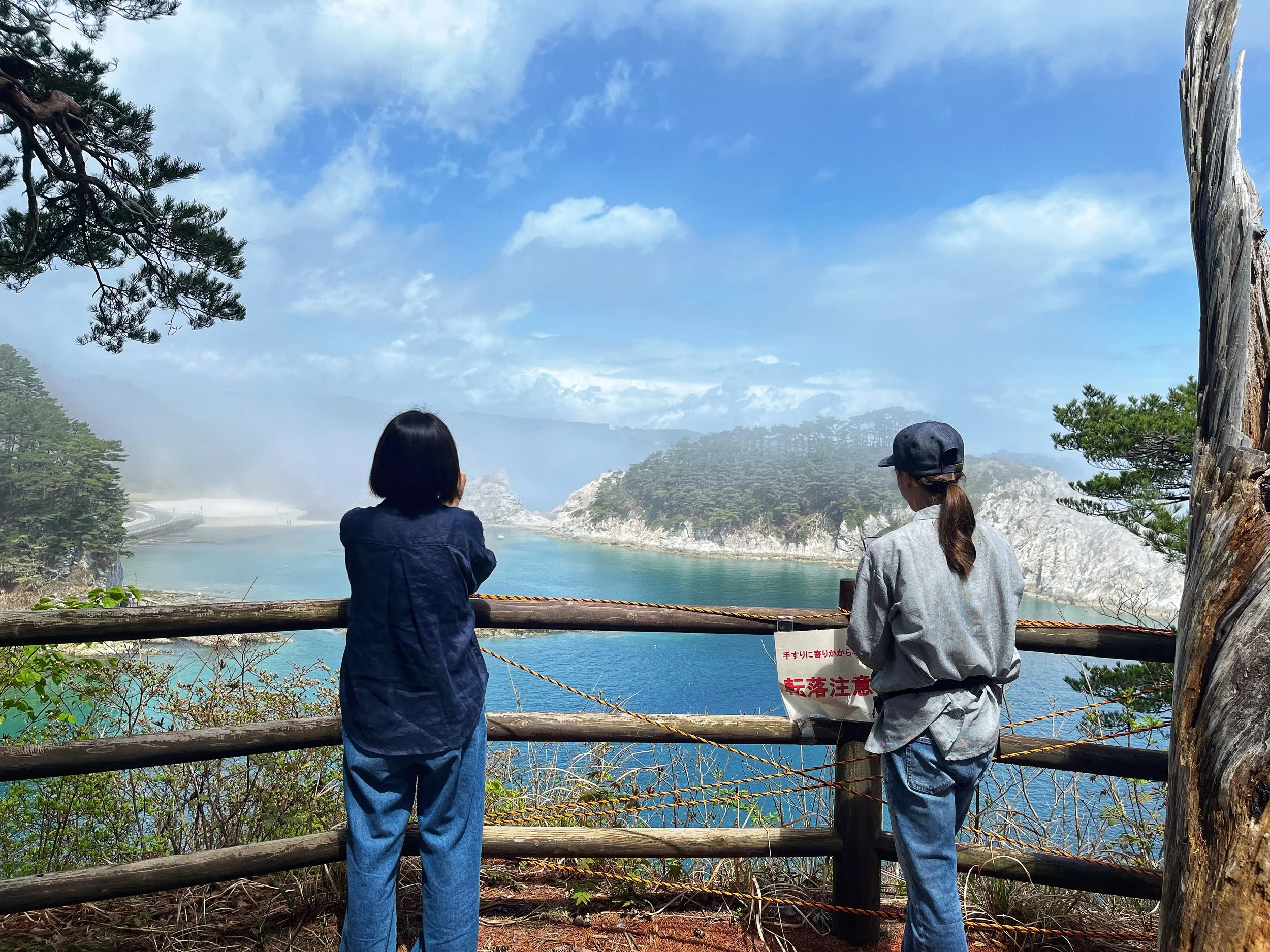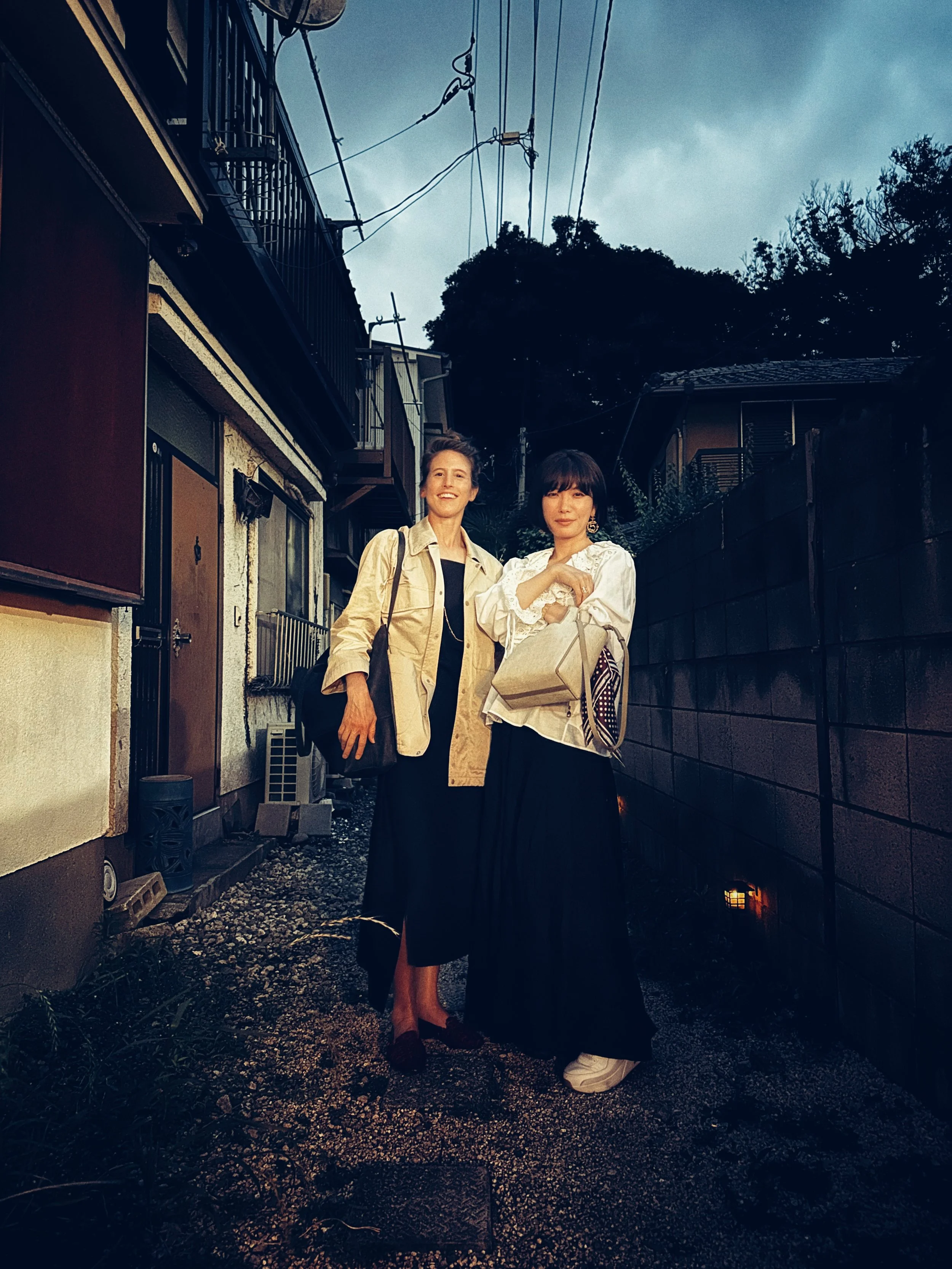“KAZE NO DENWA, The Wind Telephone”
Acclaimed Japanese novelist Mieko Kawakami and visionary theatermaker Jennifer Jancuska collaborate across languages, disciplines, and continents to craft a new story for the stage.
Page Contents
1. Project Description
2. Creative Team Introduction
3. Project Launch in Iwate Prefecture
4. Development Strategy
Project Description
Conceived as a musical with an international creative team, KAZE NO DENWA, The Wind Telephone is shaped in equal parts by text, music, and choreography.
It comes to life through internationally celebrated author Mieko Kawakami’s poetic text, steeped in Japanese authenticity and alive with sensory detail. The work is interwoven with cross-cultural musical voices, including Fumi Tanakadate, and shaped by a bold new form of direction and choreography by Jennifer Jancuska, whose staging fuses Japanese Aikido technique with a layered choreographic approach that shifts between the pedestrian and the spectacular to propel the story forward.
The script has been written in Japanese and English respectively to tell the story of three coming-of-age friends who experience the 2011 Tōhoku Earthquake and Tsunami from the coastal town of Otsuchi, Japan. Each carries a distinct relationship to memory and loss. Their triangle of perspectives on grief and its expression collides, challenges, and ultimately shifts as they discover that endurance is not inaction and that grief can coexist with joy.
Kaze no Denwa translates to telephone of the wind. It is the Japanese name given to a real British-style white telephone booth with a black rotary phone that connects to nowhere. Perched on a hilltop in Otsuchi overlooking the sea, it was untouched by the 2011 tsunami and became a place where the living go to speak to the lost. For our trio, “Kaze No Denwa,” is the pivotal breaking point in their journey through grief.
While the story emerges from a specific place and event, it carries themes that resonate far beyond its origins. At its heart, it is a universal tale about the cycles of life and the human capacity to embrace joy, endure grief, and nurture friendship. By drawing from the textures and traditions of its Japanese setting, the narrative becomes both deeply local and profoundly global—reminding us that celebration, loss, and connection are experiences that transcend borders and bind us all together.
Creative Team Introduction
Mieko Kawakami (Book Writer):
Born in Osaka, Japan, Mieko Kawakami is an internationally best-selling novelist whose works have been translated into over twenty languages and published worldwide. Celebrated as one of Japan’s most influential and groundbreaking literary voices, her writing is renowned for its poetic qualities and profound insights into the female body, ethical questions, and the complexities of modern society. Her ability to challenge societal norms, especially those surrounding womanhood and identity, has made her a beacon of feminist literature globally.
Kawakami’s internationally available works include the novel Breasts and Eggs (a New York Times Notable Book of the Year and one of TIME’s Best Books of 2020), the novel Heaven, and All the Lovers in the Night, among others. Breasts and Eggs and Heaven have brought her especially wide recognition in English translation and remain key entry points for readers discovering her work. Her novel Sisters in Yellow will be released in English in spring 2026, with publication in the United States.
Recognized by numerous prestigious awards in Japan, including the Akutagawa Prize, the Tanizaki Prize, and the Murasaki Shikibu Prize, Kawakami is a writer who not only disrupts and redefines literary traditions but also empowers a new generation of writers and thinkers.
She currently lives in Tokyo.
New York Times Article | New Yorker Article
Jennifer Jancuska (Director & Choreographer):
Jennifer Jancuska is a director, choreographer, and conceiver of new theatrical work whose process is deeply collaborative and investigative, bringing movement into dialogue with text, music, and design at the earliest stages of creation.
Jancuska is the Artistic Director of BringAbout Development, recipient of the 2026 Baryshnikov Arts Residency, the 2024–25 Japan–U.S. Creative Fellowship, the 2024 Jerome Robbins “Stories That Move” Residency, the 2024 CUNY Dance Initiative Fellowship, and was named to the 2024 Women to Watch on Broadway list by The Broadway Women’s Fund. Her work has been presented by The Old Globe, Berkeley Rep, Ars Nova, Little Island, Goodspeed, Madison Square Garden, The Drama League, The Skirball Center, Trinity Rep, and Universal Theatrical Group, among others. She is also the founder of BC Beat, recognized by The New York Times as “the place to reimagine dance in musical theatre.”
Jancuska honed her creative culture, leadership, and long-form developmental rigor over seven years as Resident Choreographer of Hamilton on Broadway. She is a graduate of Cornell University and member of SDC who has taught and created work in Japan, Brazil, France, China, the UK, and the USA.
She currently lives in New York City.
Website
Fumi Tanakadate (Japanese Arranger):
Originally from Iwate Prefecture, Japan, Fumi Tanakadate is a New York–based musician, composer, and educator whose work bridges Japanese traditional music and Western classical traditions. A classically trained pianist, she also specializes in Japanese taiko drums and bamboo flutes (shinobue and nohkan), bringing these instruments into contemporary performance, composition, and collaborative settings.
Tanakadate is drawn toward storytelling through sound and interdisciplinary collaboration, using harmony, rhythm, and timbre to evoke character, atmosphere, and emotional narrative. Her artistic practice explores new contexts for Japanese instruments, positioning them as flexible, expressive voices within global contemporary music rather than genre-bound traditions.
She has performed at venues including Carnegie Hall, Lincoln Center, National Sawdust, Joe’s Pub, BAM, the Metropolitan Museum of Art, and international festivals and conventions. An active collaborator with theater artists, dancers, and composers, Tanakadate is also a dedicated educator, currently teaching at Wesleyan University and serving as a primary instructor at Kaoru Watanabe Taiko Center.
Website
Aya Ogawa (Translator & Dramaturg):
Ogawa, a talented translator known for her translations of theatrical works by Japanese writers such as Toshiki Okada, Yudai Kamisato, Takeshi Kawamura, Yoji Sakate and Satoko Ichihara. Aya's expertise adds a unique and dynamic perspective to the project.
Website
Project launch: Tokyo and Iwate Prefecture
with Mieko Kawakami & Jennifer Jancuska
Development Timeline
Concept development with BringAbout Studio Residencies: 2024, NYC
Project is honored with the 2024-205 Japan-US Creative Fellowship by the National Endowment for the Arts
Research trip to Tokyo and Iwate Prefecture: 2024, Japan
Text & Music Development: 2025, Japan
Selected for the prestigious 2026 Baryshnikov Arts Residency: Spring 2026, NYC
Industry Workshop and Presentation: Fall 2026, NYC
Developmental Production: target season 2027/2028
Commercial Production to follow.
CONTACT
Alchemy Productions Group
Alex Stone
630 Ninth Avenue, Suite 610
New York, NY 10036
alex@alchemyproductiongroup.com
(212) 589-5407



